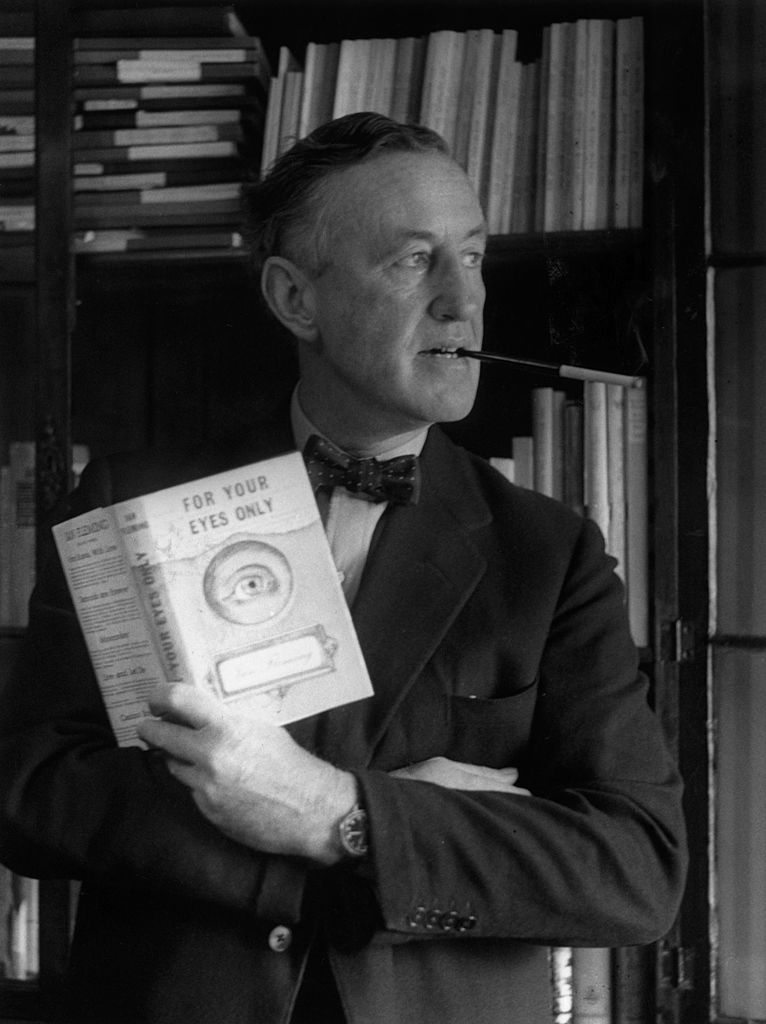
The James Bond literary franchise, written from 1953 to 1966, will receive a sensitivity review ahead of a reissue in April of the 14 novels, which will mark 70 years since Casino Royale, the debut book, was published.
Ian Fleming Publications Ltd—the company that retains literary rights to the series about 007, the iconic British secret service agent—commissioned the review that will see some racially offensive language and outdated stereotypes removed from the works written by the company’s namesake. Racial slurs toward Black people will be removed but depictions of other ethnic minorities, such as a Korean character called Oddjob in Goldfinger, the seventh book, will remain.
According to The Telegraph, the new editions will be published alongside an accompanying disclaimer that reads: “This book was written at a time when terms and attitudes which might be considered offensive by modern readers were commonplace.” This disclaimer mirrors those put in place by streaming services like Disney+, which added warnings before content with racist depictions such as The Jungle Book.
“A number of updates have been made in this edition, while keeping as close as possible to the original text and the period in which it is set,” it adds. But critics say that despite the proposed refresh for contemporary readers, many references to gendered violence and sexual assault will remain in the texts.
(Ian Fleming Publications did not immediately respond to a request for comment.)
The amendments come fresh off the heels of Puffin Books’ announcement that they will modify Roald Dahl’s children’s books so they “continue to be enjoyed by all children today.” The changes entail removing language related to race, gender, weight, and mental health that today’s readers deem offensive. The news invited a wealth of backlash from those who view such modifications as censorship.
As the publishing industry faces increased scrutiny for revising texts, here’s what to know about changes to the James Bond novels.
What racist content has been removed from Fleming’s novels?
According to The Telegraph, most of the revisions pertain to the way Black people are described. One such instance is Bond’s assertion that suspected African criminals are “pretty law-abiding chaps I should have thought, except when they’ve drunk too much,” which has now been shortened to “pretty law-abiding chaps I should have thought.”
Another passage that has been completely removed sees Bond witnessing a couple arguing in Harlem in New York City. Fleming wrote that the man and woman spoke in an accent that was “straight Harlem-Deep South with a lot of New York thrown in.”
The novels were also littered with well known racial slurs for Black people, which have been changed in the new editions to “black person” or “black man” where relevant.
Overall, racial descriptors have been significantly reduced. In Dr. No, the sixth Bond novel, characters whose race was once identifiable have now become “gangsters,” while in Goldfinger, Black servicemen in a Second World War logistics unit, the Red Ball Express, have simply become “ex-drivers.”
What sexist content has stayed in the books?
While some readers may welcome the removal of racial slurs and stereotypes, the franchise also has a reputation for outdated, one-dimensional gender roles, as well as female characters with sexual innuendos for names.
References to the “sweet tang of rape,” “blithering women,” and failing to do a “man’s work” will reportedly not be removed from the books. Additionally, homophobic statements including the idea that homosexuality is a “stubborn disability” will reportedly remain.
This selective approach to updating the text is deliberate, says Australian author Clementine Ford, who has written about the sexism behind on-screen Bond girls, of which there have been over 75 so far. “It seems to me that the reason a sensitivity edit is being sought for racially charged language is not just to retroactively erase the racism of the Bond universe, but to ensure Bond remains both admirable and popular in a modern climate,” Ford tells TIME.
“Given that, one has to ask why sexism and the dehumanization of women is not considered anathema to Bond’s appeal, but central to it,” Ford adds.
The sexism of the James Bond character
Bond girls, an umbrella term given to the love interests of the fictional British spy, were typically portrayed in movies by young female actors clad in bikinis or dramatic evening gowns and are typically seductresses.
While these roles have historically come with sassy or witty lines—and the women are villains as often as they are heroes—they are ultimately plot devices to be killed off at a moment’s notice, Ford wrote in a 2015 essay. “They are beautiful, intelligent, often duplicitous—and all highly discardable,” she added.
Ford’s essay also said that the efforts of contemporary directors, such as Sam Mendes, have brought the Bond girl into the 21st century by casting age appropriate women, such as a then 51-year-old Monica Bellucci in Spectre (2015) opposite Daniel Craig, who is four years her senior. But as TIME’s Eliana Dockterman wrote when Craig exited the franchise in 2021, “The character has a history of raping, objectifying, and using women. And Bond movies often glamorized that behavior. The character taught generations of men that misogyny was cool.”
Ford’s comments echo that sentiment. “Consent is an absent concept in Bond’s world, but somehow audiences, and women in particular, are expected to embrace this as part of his cultural appeal,” she says. “Are we to have a Bond who rails against the scourge of white supremacy yet somehow overlooks the impact misogyny has on women?”
More Must-Reads from TIME
- Cybersecurity Experts Are Sounding the Alarm on DOGE
- Meet the 2025 Women of the Year
- The Harsh Truth About Disability Inclusion
- Why Do More Young Adults Have Cancer?
- Colman Domingo Leads With Radical Love
- How to Get Better at Doing Things Alone
- Michelle Zauner Stares Down the Darkness
Write to Armani Syed at armani.syed@time.com